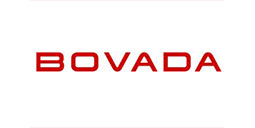Op Ed: Defining Decentralization: The Way Ambiguity Continues to Split Crypto
I ’ve spoken to colleagues and a lot of friends on this issue, also I’ve come to the conclusion that 100% decentralization doesn’t exist. There is always likely to be a degree of compromise needed between parties in order to make stage or a scalable and fully working undertaking.
When I first fell the Bitcoin bunny hole down five decades ago, I believed decentralization was that the & ldquo; rdquo & holy grail; for the success of this business. I recognized (and still do) the fundamental issues with centralization and common in the idealistic fantasy of maintaining cryptocurrencies like bitcoin along with ether decentralized amidst accelerated progress in the business.
That said: Is this always a bad thing? We’re not, at least in the not too distant future, heading to view jobs that are decentralized abolish the reserve or overpower the world wide web. Perhaps it doesn’t seem exactly like exactly that which we envisioned when we jumped the bunny hole down, but that doesn’t believe it will be much less impactful or important.
That is a guest article by Paul Puey. Views expressed are his own and don’t necessarily reflect those of BTC Inc or even Bitcoin Magazine.
Herein lies the problem: Because rsquo & there;s not any more agreed-upon standard for it decentralization ’s impossible for its cryptocurrency community to return to a consensus about which jobs are decentralized. It can’t be the goal should rsquo & there;s no explanation for the way to attain it.
To state that decentralization is an important element of cryptocurrency&rsquopotential could be a gross understatement. However, I do believe that the crypto community is misguided in its view since we understand it that decentralization is an solution to the ills of both centralization. Yes, decentralization can help remove some of the problems of centralized infrastructure, but is decentralization our goal? From the pursuit of decentralization shouldn mass adoption ’t be our goal, but rather a way to accomplish the many distinct, and equally important, goals which exist for cryptocurrency users.
There are lots of keywords in blockchain, however a few spark as much emotion as “decentralization. ” For a lot of us, it was the fantasy of practice areas which could be positively impacted by this technology — that the driving force inviting us to investigate the many industries and decentralization that motivated us to descend into the sector in the first place.
If we genuinely expect the business to grow, crypto jobs must be prepared to accept a balance of centralization and decentralization so as to accomplish the end goals of the community. That doesn’t imply that we have to collect crypto’s minds in 1 area to decide on a definition of this word “decentralization;&rdquo t want them to. It does, however, imply that individuals within the blockchain community must stop using their comprehension of decentralization as a litmus test for the success of other projects.
Though some of the very decentralized exchanges have the ability to accomplish each the aforementioned, they need to make huge compromises in user experience (UX), rate and cost in order to do so. As an instance, the many complained-about problem with exchanges would be that the safety risk of funds that are centralized. But KYC protocols are nevertheless required by them and restrict the sorts of assets listed on the exchange, while DEXs can solve problem # 1. Consequently, these DEXs are exposed to criticism. ” If solving a safety dilemma was their goal, however, then they’ve made huge strides in their achievements and deserve recognition.
From the pursuit of mass adoption, decentralization shouldn’t be our goal, but rather a way to accomplish the many distinct, and equally important, goals that exist for cryptocurrency users.
In time I came difficult to specify, and, first and foremost, to understand that decentralization is a wide concept which could be costly, difficult to implement. Because each individual enters the neighborhood with their own definition for & ldquo; decentralization, & rdquo; they & rsquo; re a lot more likely to reject jobs that don & rsquo; t fulfill with their vision. In a lot of ways, this battle has functioned as the catalyst driving their individual communities, and lots of coins , to hard fork from one another.
- Eliminating custodial danger by enabling every user to restrain their funds;
- Allowing wider access to this exchange from anybody on earth;
- Allowing wider access to any cryptocurrency asset; and
- Providing privacy with no Know-Your-Customer (KYC) requirements.
Think about the role of decentralized exchanges (DEXs), as an instance. In spite of the fact that exchange platforms serve as intermediaries for its trading of cryptocurrency between users, DEXs may take the intermediary from this equation — only connecting the buyer and the seller by means of a trade. There are benefits to decentralizing this process:
Rather, investors must step back and ask themselves what their goals were once they have engaged in this technology, then see whether the jobs they work or support on align with these goals. Once we recognize that decentralization is a blanket term covering many unique mindsets and perspectives and take a step back, we will eventually have the ability to adopt the diverse projects that have the capacity.
As is the case with most things in cryptocurrency, distinctions in decentralization are not always white and black. While one individual might specify decentralization as every individual it might be defined by another as having multiple rival development teams working on a protocol, while another individual might define it. None of these individuals are incorrect by any way, but since they disagree, they’re more likely to accuse another of centralization that is underlying.
In trying to find a solution, I posit that investors and developers alike must be willing to compromise so as to appeal to a public that will care less about the word “decentralization” and much more about the words “fast, cheap, convenient, private or accessible. ” your target market won & rsquo If your merchandise is hard, expensive or inaccessible ;t use it.
Op Ed: Defining Decentralization Ambiguity Continues to Split Crypto - April 2024
EXPERTLY REVIEWED
MOBILE FRIENDLY
FAST PAYOUTS
- CasinoRatingBonusVisit Casino
Get your 100% Match Bonus up to $1000!
200% match bonus up to 2000
Up to 5 BTC
100% match bonus + 180 free spins
Get up to 1 BTC on First Deposit!
Welcome bonus up to 1.5BTC + 250 free spins
Get your 5 BTC Welcome Bonus
Top Rated







Search
Casino List
- Bovada Casino
- 7bit Casino
- Bitstarz Casino
- Sun Palace Casino
- Ignition Casino
- Tangiers Casino
- Nitrogen Sports Casino
- Casumo Casino
- Fortunejack Casino
- Mars Casino
- Mbit Casino
- Cafe Casino
- Drake Casino
- Grand Fortune Casino
- CryptoReels Casino
- Wild Casino
- Betchain Casino
- Oshi Casino
- Bitcoin Penguin Casino
- Joe Fortune Casino
- Vegas Casino.io







